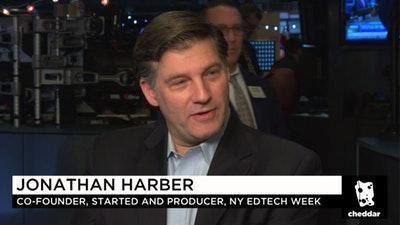Randi Zuckerberg's Blog, page 3
April 3, 2019
Radio Recap: Transportation Sharing
 According to Balance Small Business, the sharing economy is one of the fastest growing business trends ever in history, with investors putting inmore than $23 billion in venture capital funding since 2010 into share-based model startups.
According to Balance Small Business, the sharing economy is one of the fastest growing business trends ever in history, with investors putting inmore than $23 billion in venture capital funding since 2010 into share-based model startups.
Since most of these businesses are private, it’s impossible to know the actual size of the sharing economy but there are several clues to indicate its massive impact on society. Airbnb and Uber have a combined $103 billion market cap which would rank them as the 38th wealthiest country in the world. In 2016, 44.8 million U.S. adults used the sharing economy, and it’s expected to grow to 86.5 million U.S. users by 2021. McKinsey estimates that in the U.S. and Europe alone, 162 million people or 20-30 percent of the workforce are providers on sharing platforms.
The healthcare industry is expected to generate annual revenues of $8.7 trillion by 2020. PWC research suggests that 86% of U.S. adults familiar with the sharing economy say that it makes life more affordable and 83% also agree that the sharing economy is more convenient and efficient than traditional methods.
Today discussing the transportation sharing economy from scooter rideshare company, was Phil Jones, Lime’s senior policy director for the east coast and Jennifer Young, the co-founder and CMO of Outdoorsy, the first fully insured peer-to-peer marketplace for RVs.


March 27, 2019
Radio Recap: FemTech + Global Mobility
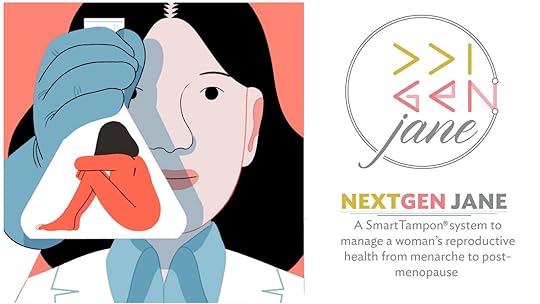
Historically, tech that caters to women’s health issues hasn’t received much, if any, funding—but the tide is turning. According to a study from Frost & Sullivan, it’s estimated that by 2025, Femtech will be a $50 billion industry.
The term ‘Femtech’ was first coined in 2016 by Ida Tin, the founder of menstrual tracking app, Clue, and refers to gadgets, products and advancements in women’s health, including menstruation, pregnancy, menopause, and fertility.
According to Pitchbook data, five years ago funding in the global FemTech sector barely hit $100 million, so it’s no surprise that— since women make up half of the world’s population and 80% of household healthcare spending is done by women— this year is set to see more than $400 million in funding given to the success of FemTech businesses.
Today I sat down with Ridhi Tariyal, the CEO and co-founder of NextGen Jane, a tampon that tracks fertility and can test for STIs.

GLOBAL MOBILITY
According to data from the 2017 World Economic Forum, China produces nearly 5 million STEM graduates, India churns out 2.6 million while the U.S. produces around 568,000, of which well over half are foreign nationals from China and India.
To counter these numbers, in 2018 the H-1B visa brought in around 200,000 applications filed by companies trying to woo foreign workers. But the U.S. is cracking down on employment-based immigration programs so U.S. companies are increasingly moving jobs to Canada to avoid the huge demand of H-1B and other work visa programs.
Canada has been aggressively marketing itself as a friendly alternative for tech companies seeking international talent in the nation’s quest to become a more influential tech hub. This year alone, Canada aims to add 330,800 permanent residents under new immigration rules.
Here with me to discuss the future of global mobility is Stephanie Lewin, Head of Global Immigration for Envoy Global.

Stephanie Lewin
March 20, 2019
Radio Recap: Niche TV Content

Whether it’d be from a device, at home, in a restaurant, or on top of a taxi, with 81% of the U.S. population currently living in an urban area, people are increasingly more exposed to a multitude of screens throughout their day. So it’s crucial that what goes on those screens not only needs to be engaging, but that it’s also specialized branded content. And there’s no better way to engage viewers—and advertisers—than creating niche content.
Personalized, niche content offers tailor-made experiences. By developing niche content, you can appeal to consumers while generating more advertising dollars. An Interactive Advertising Bureau study shows that 9 in 10 advertisers say original digital video programming is crucial to their media plans as nearly 60% of marketers’ digital ad budgets are allocated to video alone. While 44% of advertisers report strong interest in buying interactive ads on connected TV.
Here with me to discuss creating niche content is John Limotte, the founder and CEO of one-stop shop content agency, Mustache. And joining on the phone is Leo Resig, the founder of multiplatform digital media and digital-out-of-home company ChiveTV and Atmosphere.


March 13, 2019
Radio Recap: The Psychology of the Unfollow

Back in the pre-Internet days when we had a blowup with a friend or a breakup with an ex, we simply didn’t hang out with them anymore. Nowadays we unfollow, mute, unfriend, and block people we no longer want to hear from. But more and more studies are showing that the psychology of the unfollow leads to feelings of personal guilt, tension, and depression.
A Yale study found that we only recognize 72% of our Facebook friends, so sometimes we have to do a little de-cluttering of our social media profiles to remove those we don’t know. Through social media we learn whose marriage is ending by who they unfriend. And now there are dozens of digital products to help keep track of whom you follow but doesn’t follow back so you can choose to unfollow out of spite.
But, according to experts, unfollowing can have dual effects—some bad, like boxer Floyd Mayweather who was said to have gone “nuclear” when Justin Bieber unfollowed him, and some good, like actress Gabrielle Union unfollowing a barrage of online mommy shamers after her daughter was born to a surrogate.
With me to discuss why, when, and how we should unfollow are Dr. David Greenfield, founder of The Center for Internet and Technology Addiction, BuzzFeed’s Katie Notopoulos, and creator of the hashtag UnfollowAMan, and Collin Robinson, creator of the site Who Unfollowed Me.



March 6, 2019
Radio Recap: False Advertising

Federal law states that all advertising—that means radio, print, billboard, TV, or anywhere else—must be truthful, not misleading, It also states that when possible, ads should be backed by scientific evidence, yet a 2018 study called the ‘Deceptive Marketing of Hope,’ conducted by the nonprofit, Truth in Advertising, or TINA, found that out of the 48 cancer centers it researched, 90% were deceptively promoting positive patient testimonials in their TV and digital marketing material. More recently Canada Dry agreed to pay $11 million to settle claims of false advertising made about using real ginger in their soda, and Walmart hosted a day-long sale on baby clothing, accessories, and equipment but shoppers said sales assistants didn’t even know the event was happening so they were not willing to give 30% off as advertised.
Class-action lawsuits filed by consumers over allegedly deceptive pricing practices have, too, been on the rise. According to Consumer Reports, since 2014 more than 150 lawsuits have been brought against more than 80 retailers, alleging that they duped consumers through false price advertising. So how ubiquitous is false advertising and how does it not only hurt the customer but hurt profits as well?
Here to discuss the dangers of false advertising is Bonnie Patten, Executive Director of Truth in Advertising, and joining via phone is former managing editor at the Hustle, Lindsey Quinn, who recently hosted a fake TEDTalk using clichés from other TEDTalks about the way to raise $60 million for a startup.


February 27, 2019
Radio Recap: The Cost of Sustainability

A 2018 study estimated that 500 million straws are used every day in the US alone, equating to 1.6 straws per person a day. That’s 8.3 billion plastic straws in thealmost 250,000 metric tons of plastic in the world’s oceans—a number that’s set to double by 2025. This year the ban on plastic straws has taken affect—or is set to take affect—in the UK, Seattle, multiple cities in California, and at companies like Starbucks and Disney. But as environmental advocates push for reusable alternatives to plastic straws, the fashion industry is working—or better yet cashing in—on the attempt to bring about change as well. Products like hand-blown glass or sterling silver straws that can run up to $200 per straw are now available for purchase.
But is the value the fashion system assigns to statement luxury items actually taking a stand for social responsibility or is there a hidden value behind the cost that is being overlooked?
Today discussing the cost and value in sustainability, fashion and eco-friendly trends is Andy Romjue, President of Hoffmaster Foodservice, which recently acquired Aardvark— the only company in the US who makes paper straws commercially. Also in studio is Aanchal Bakshi and Kerstin Heitzke from NYU’s Costume Studies Program. They curated the exhibit, Gray Area: Authenticity, Value, and Subversion in Fashion.



February 20, 2019
Radio Recap: Growing Trends for Women
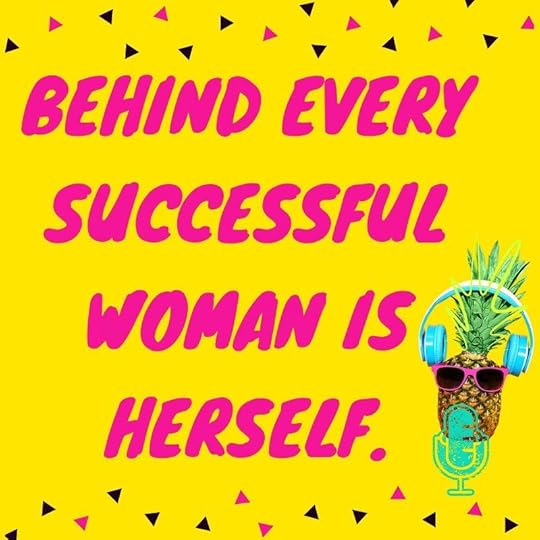
Between 2017 and 2018, women started an average of 1,821 new businesses a day. For those new female entrepreneurs, they need a place to launch and an office to launch from. But as more companies are moving from traditional office-type cubicles, and with more careers built out of media and production, professional women need to find more welcoming spaces for their endeavors.
While the trend of co-working spaces has been on the rise by appealing to large corporations for their location, flexibility, affordability, and employee satisfaction, they’ve been a draw to a majority of men who enjoy perks like free beer, ping pong and video games. And in the podcasting world, where more than 500,000 people upload their podcasts to Apple Podcasts, and as opposed to the 50 million people who regularly post videos to YouTube, men make up the majority in listeners in the podcasting industry and, according to 2017of the top 100 podcasts on the iTunes charts in America and the UK shows men host 63 of the top 100 podcasts, while only 13 are hosted by women. Yet the podcasting industry is is still in its infancy.
Discussing options for women in growing trends is Molly Beck, the founder of MessyFM, a site that enables users to record, edit, and publish their podcasts for free, and Amy Nelson, co-founder of female-centric co-working startup, The Riveter.
Don’t forget to listen to my new podcast on MessyFM, Once Upon a Timestamp!


February 13, 2019
Radio Recap: Compatibility & Career
 Knowing your personality typecan help with career planning at every stage from what to major in to pivoting careers. Over 2 million people are administered the Myers-Briggs Type Indicator assessment—or MBTI—worldwide each year. MBTI was founded by mother/daughter team Katharine Cook Briggs and Isabel Briggs Myers.
Knowing your personality typecan help with career planning at every stage from what to major in to pivoting careers. Over 2 million people are administered the Myers-Briggs Type Indicator assessment—or MBTI—worldwide each year. MBTI was founded by mother/daughter team Katharine Cook Briggs and Isabel Briggs Myers.
Based on Carl Jung’s renowned “16 Psychological Types”—Jung’s theory for self-understanding and life-long development—MBTI type descriptions, too, characterize 16 different types of personalities, providing positive, self-affirming goals; and noting blind spots and problems to avoid. MBTI career assessments provide ways for looking at occupations attractive to each of the 16 psychological types.
Career counselors use type tables to help clients find what might fit their personality best and help to highlight careers especially worth considering. The MBTI problem-solving model is a useful tool in the career planning process. Finally, counselors who understand the MBTI find it useful for individualizing counseling approaches and strategies to the type preferences of their clients.
The before Valentine’s Day Randi discussed career compatibility with career coach and certified MBTI practitioner, Lindsey Plewa. Plus updates in tech and love with returning guest, Julie Spira.
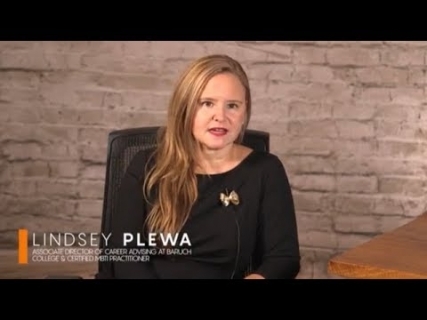

February 6, 2019
Radio Recap: Luxury Verification

Counterfeit goods make up around 2.5% of all global imports to the US—which is somewhere in the ballpark of half a trillion dollars. In 2017, US Customs seized more than 34,000 shipments of counterfeit goods—an 8% increase from 2016—and yet in the US, the resale business is a $17 billion dollar industry and a $20 billion industry in Europe. But according to the Anti-Counterfeiting Manager at the International Trademark Association, shoppers who buy knock-off goods to look expensive for less are actually helping fund the same people involved in human trafficking and terrorism.
To keep these numbers from rising, resale retailers are working hard to get away from knock-off goods that not only disappoint customers but also fund the bad guys—so, of course, technology is here help.
Today discussing the business of resale retail, artificial intelligence, and luxury goods verification are Vidyuth Srinvasan, CEO of luxury handbag verification app, Entrupy, Liz Wolff, founder of Cure Thrift Shop. On the phone from Hong Kong is Sarah Fung Founder of Hula, a pre-owned designer womenswear online marketplace, and also via phone is Ryan Smith, Senior Director of Online Operations at ShopGoodwill.com.
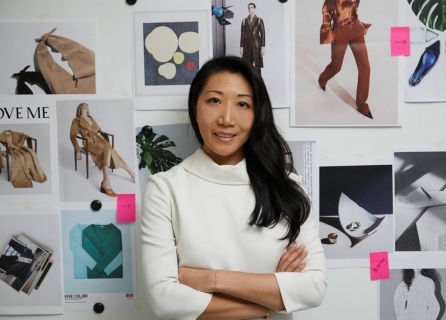
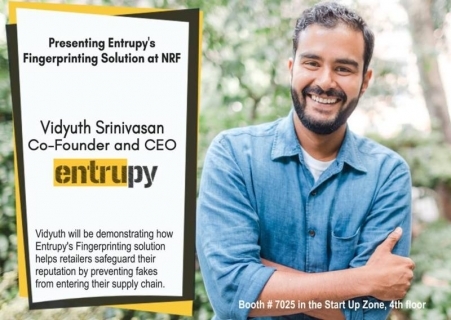
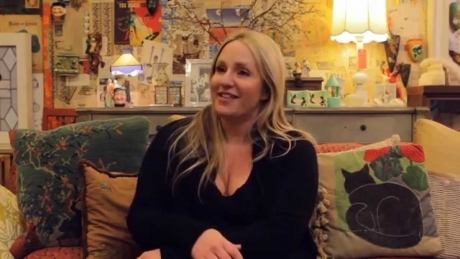

January 23, 2019
Radio Recap: The EdTech Industry

The education space is chockfull of products for parents, students and educators, quickly becoming one of the fastest growing and most profitable industries. According to Forbes, in 2017, 813 different EdTech companies received funding while in 2018 EdTech investments hit a historical record of $9.5 billion.
These EdTech investments mark a historic gain up 30% from 2016.And of the more than $38 billion invested in education technology companies since 1997, 62% of those dollars were invested in the last three years. PreK through grade 12 companies received 13% of the overall global investment, and higher education companies got 8% for a combined 21% going to PreK through college enterprises. Given these numbers are a small fraction of total investments, education startups may find it quite challenging to get in front of the right people in a school district.
Today discussing the business of EdTech are co-founders Ash Kaluarachchi and Jonathan D. Harber of StartEd New York’s premier deep immersion Edtech accelerator. On the phone from San Francisco is Austen Allred, the CEO of Lambda School, an education startup that offers tuition-free data science and coding courses for a slice of future paychecks.

